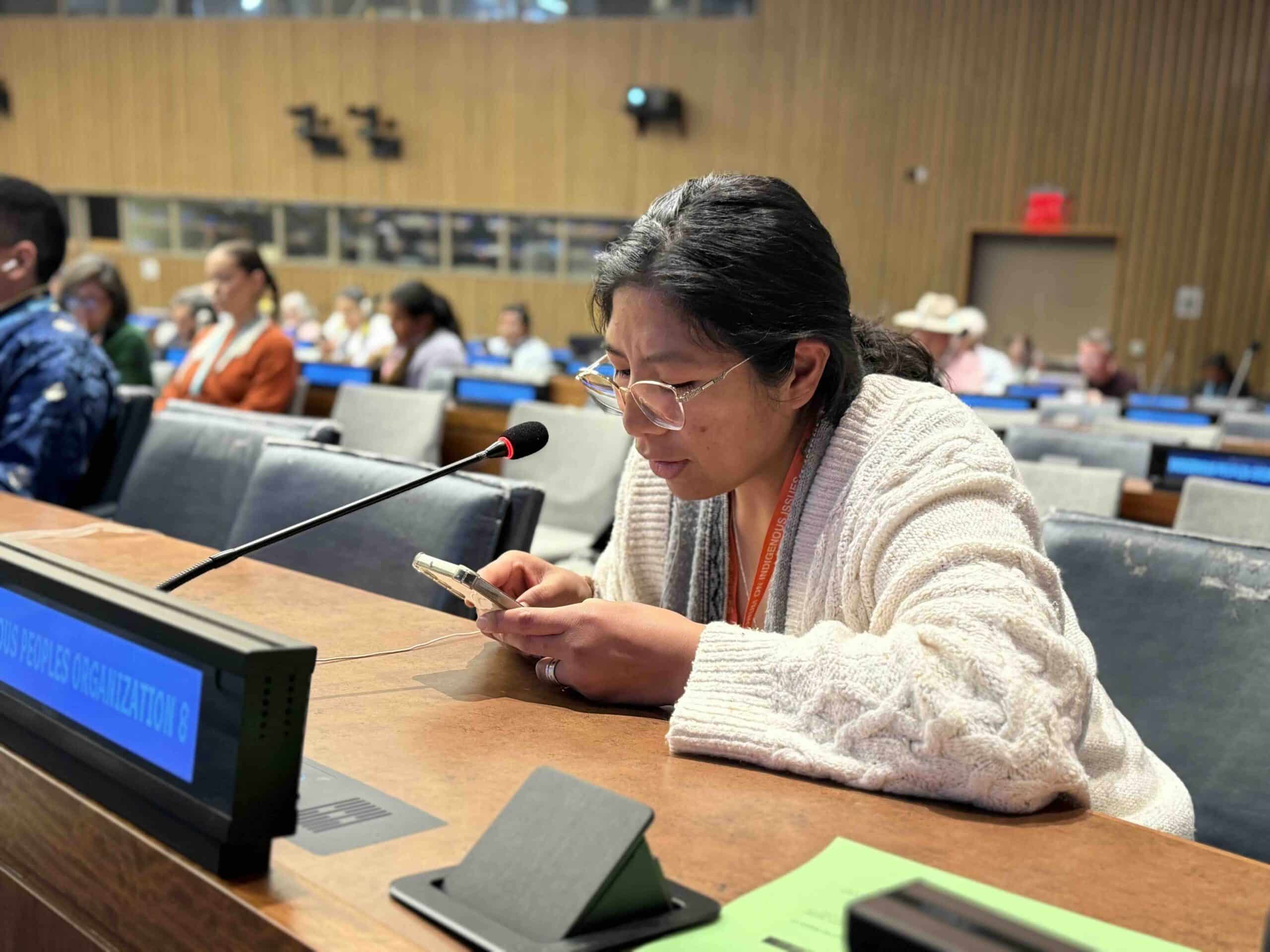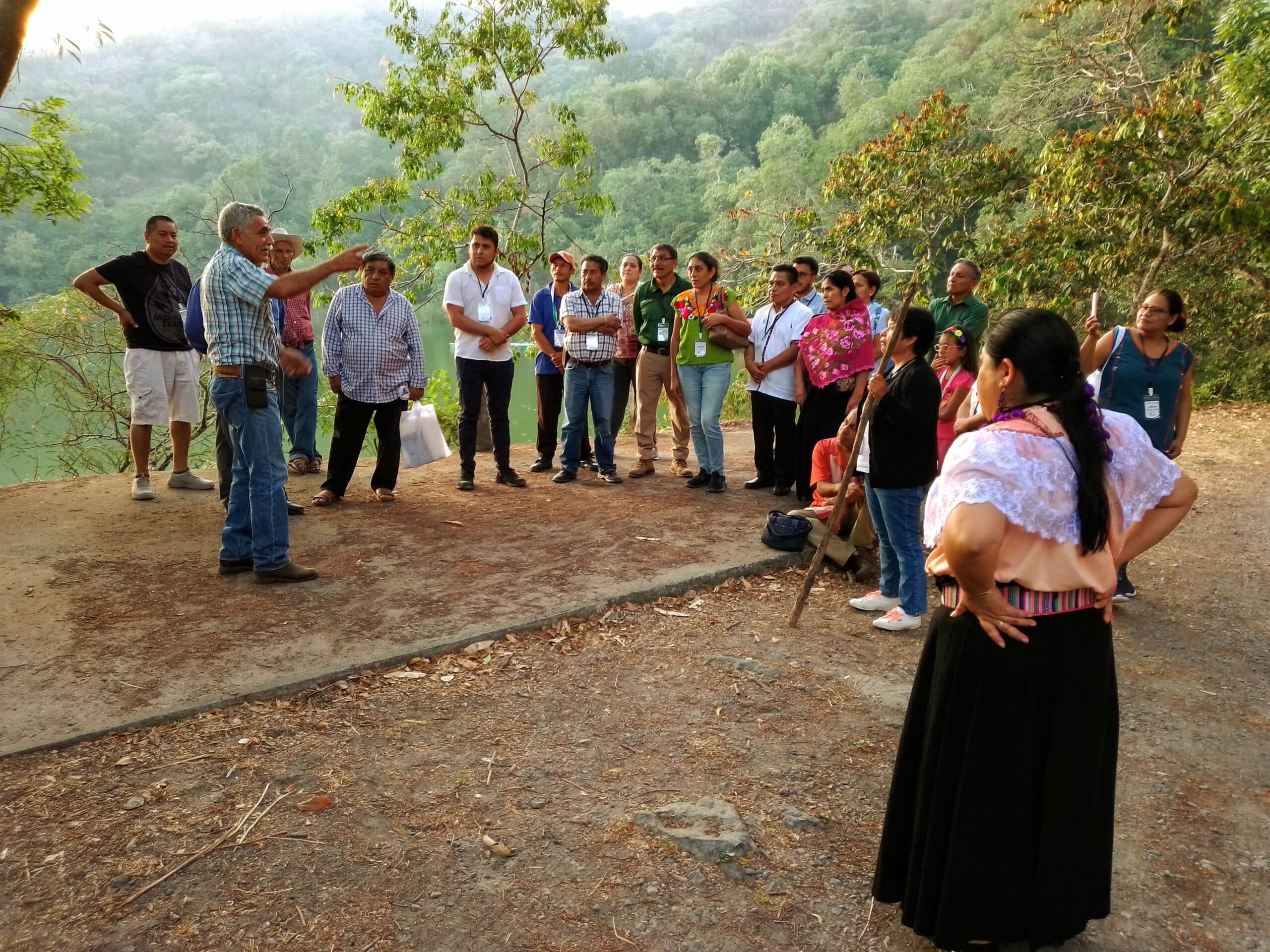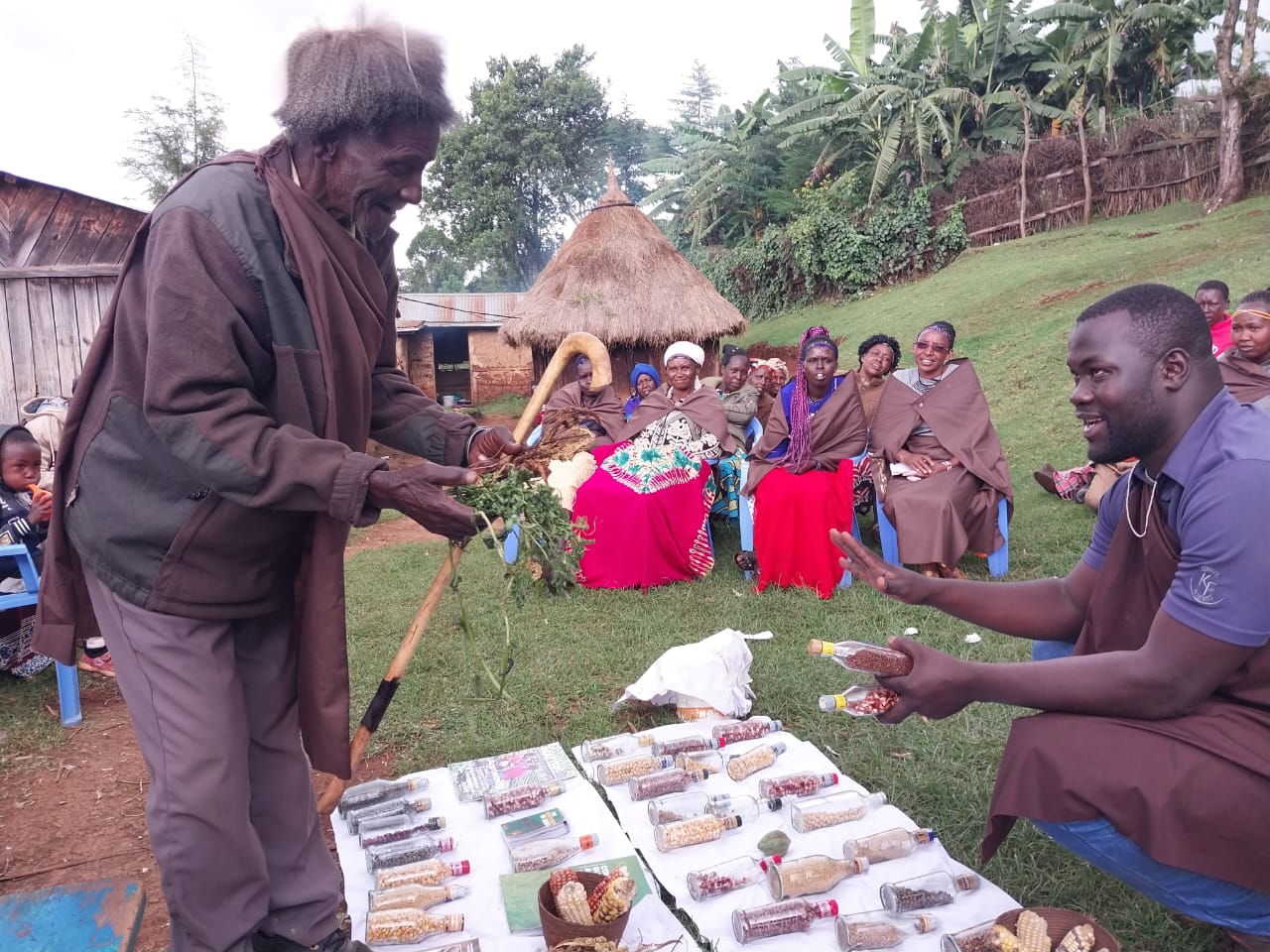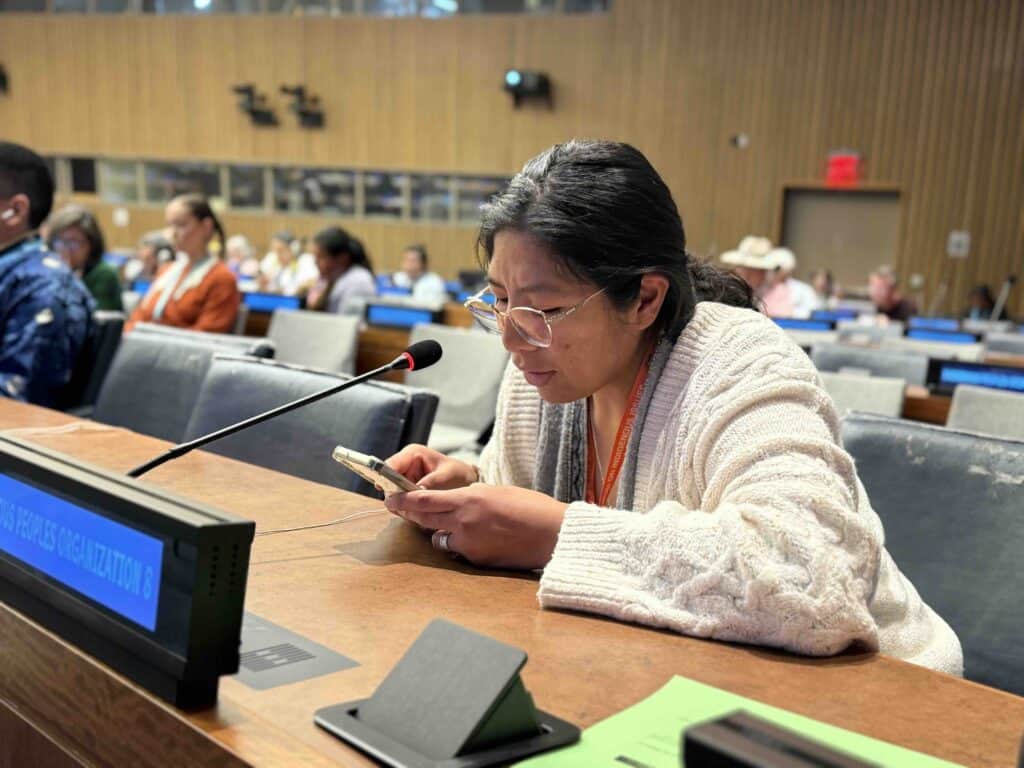
By Tatiana Blanco Quiroga
I grew up hearing my grandmother speak to the water before drinking it. She taught me that the river doesn’t just flow; it also listens, it also feels. As a young Andean Indigenous woman, trained in science but guided by ancestral wisdom, I have learned that our struggles are not only for rights, but for memory, for dignity, for the right to continue being who we are.
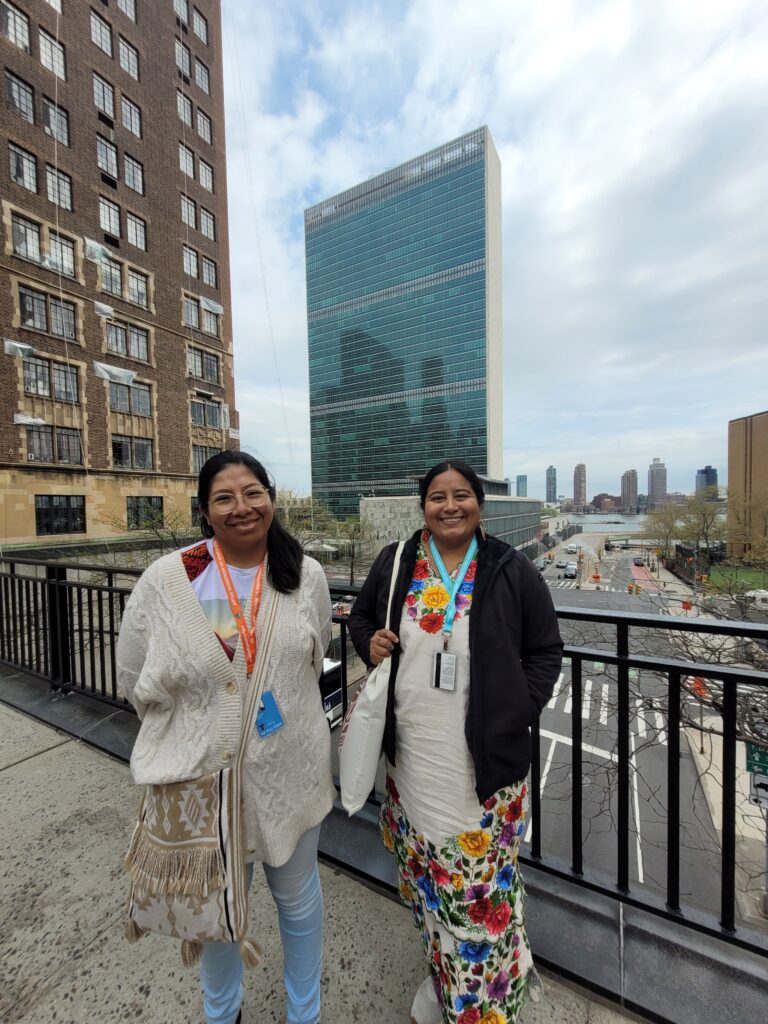
Participating for the first time in the United Nations Permanent Forum on Indigenous Issues was like opening a door to a world we already inhabited, but where our voices were rarely heard with open hearts. It was an experience that moved me, challenged me, and strengthened me.
Speaking in such an institutional space as a young woman, Indigenous, and defender of territories, was not an individual act. It was a collective act. I spoke on behalf of the Indigenous women in my family, my community, “Mujeres del Sur,” our alliance of Indigenous women who protect water, life, and the knowledge of our peoples. I spoke from the Andes, but also from the pain and hopes of so many peoples who face extractive projects without consent, education that denies our languages, and policies that still see us as obstacles, not solutions.
At the Forum, I felt the power of encounter. I listened to sisters from the Arctic, the Pacific, the Amazon. Each one shared her truth, but we all agreed on the essential: the Earth is crying, and with it, we cry.
One of the deepest lessons was seeing how the rights contained in the United Nations Declaration on the Rights of Indigenous Peoples can be living tools, not just formal texts. But for this, we need spaces where we are heard, not just tolerated. We need resources to sustain our own ways of learning, caring, and deciding. And we need the international community to recognize that without us, there is no possible sustainable future.

Comunaria Uru, Bolivia
Foto de Tatiana B.
I returned home with more questions than answers, but also with renewed clarity: these global spaces must serve to nourish local resistances. Because it is in the territory where we defend life every day, where we weave alternatives, where we teach our girls to love being Indigenous, to know themselves as seeds.
I thank Land is Life for opening this space for us to speak. From our hills, from our struggles, we continue to say: the future has roots. And those roots are the Indigenous peoples.
Jallalla.
Tatiana Blanco is an Aymara woman, community leader, environmental scientist, and Land is Life fellow committed to defending the rights of Indigenous Peoples and restoring ecosystems. Motivated by what she has seen of the environmental degradation caused by mining pollution and climate change, she has dedicated her work to unite traditional knowledge with science to heal territories and bodies of water.
She leads the Uru Uru team, which works to decontaminate lakes and wetlands in Bolivia, promoting nature-based solutions and strengthening the role of indigenous women in environmental protection. She has collaborated with national and international institutions, highlighting the importance of ancestral knowledge in the fight against climate change.

